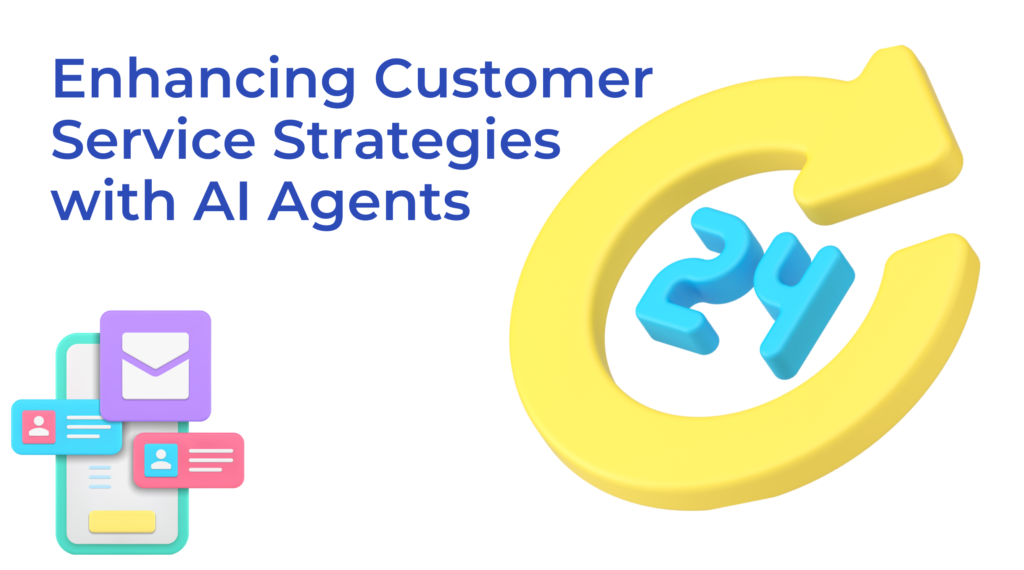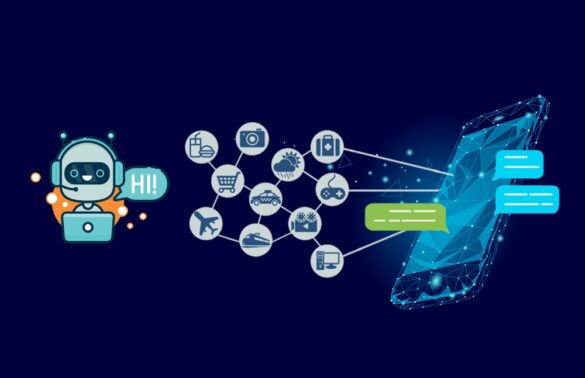69

Introduction:
In today’s competitive digital landscape, customer service is the cornerstone of business success. Customers expect instant, personalized, and seamless interactions. Meeting these expectations requires innovative solutions, and that’s where AI agents come into play. These intelligent software entities are transforming how businesses engage with their customers, offering unprecedented levels of efficiency and personalization. This blog post delves into the pivotal role of AI agents in enhancing customer service strategies and how they can drive business growth.
Understanding AI Agents
AI agents are computer programs that leverage artificial intelligence to perform tasks automatcally. They are designed to mimic human intelligence, enabling them to understand and respond to customer inquiries in a natural and efficient manner.
Types of AI Agents:
Chatbots: These are AI-based conversational interfaces that can handle daily inquiries, provide information, and guide customers through specific processes.
Virtual Assistants: More sophisticated than chatbots, virtual assistants can perform a wider range of tasks, including scheduling appointments, managing accounts, and providing personalized recommendations.
How They Work: AI agents rely on technologies like:
Natural Language Processing (NLP): This allows them to understand and interpret human language.
Machine Learning (ML): This enables them to learn from interactions and improve their performance over time.

24/7 Availability
Customers expect support at any time, day or night. AI agents provide round-the-clock availability, ensuring that customers can get assistance whenever they need it.
Example: A customer experiencing an issue with an online purchase at 3 AM can receive immediate support from an AI chatbot, resolving their problem without delay.
Personalized Customer Experiences
AI agents can analyze customer data to provide personalized responses and recommendations. This level of personalization creates a more engaging and satisfying customer experience.
By knowing a customers past purchase history a chatbot can provide very specific product recommendations.
Faster Response Times
AI agents can handle multiple inquiries simultaneously, significantly reducing wait times. This leads to quicker resolutions and happier customers.
This is especially helpful during high traffic periods.
Consistent Service Quality
AI agents deliver consistent, correct information, eliminating the variability associated with human agents. This ensures that every customer receives a reliable and positive experience.
This eliminates human error, and ensures brand standards are always met.
Proactive Customer Support
AI agents can anticipate customer needs and offer preemptive solutions. For example, a chatbot might detect a customer struggling with a checkout process and proactively offer assistance.
This can prevent customer frustration, and reduce cart abandonment.
Implementing AI Agents in Your Customer Service
To effectively integrate AI agents into your customer service strategy, consider these steps:
Identify Key Customer Pain Points: Determine the most common customer inquiries and challenges.
Choose the Right AI Agent Platform: Select a platform that aligns with your business needs and integrates with your existing systems.
Integrate with Existing Systems: Seamlessly integrate the AI agent with your CRM, help desk, and other relevant systems.
Train and Optimize the AI Agent: Provide thorough training and continuously optimize the agent’s performance based on customer feedback and data analysis.
Monitor and Analyze Performance: Track key performance indicators (KPIs) to measure the effectiveness of your AI agent and identify areas for improvement.

